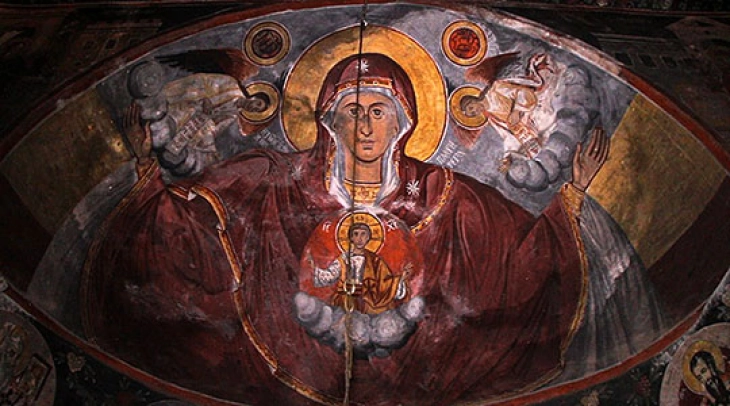Religious calendars
- Moses was an Ethiopian by birth and by profession, at first, a robber and leader of a band of robbers and, after that, a penitent and great ascetic. As the slave of a master, Moses escaped and joined the robbers.

10 September 2024 (MIA)
Macedonian Orthodox Church Calendar
Venerable Moses The Black (The Robber)
Moses was an Ethiopian by birth and by profession, at first, a robber and leader of a band of robbers and, after that, a penitent and great ascetic. As the slave of a master, Moses escaped and joined the robbers. Because of his great physical strength and arrogance, the robbers chose him as their leader. Suddenly, Moses was overcome with pangs of conscience and repentance for the misdeeds, which he had committed. He left the group, entered a monastery and gave himself completely in obedience to his spiritual father and to the monastic rule. He benefited much from the teachings of Saints Macarius, Arsenius and Isidore. Later, he withdrew to solitude in a cell where he dedicated himself completely to physical labor, prayer, vigils and godly-thoughts. Tormented by the demon of fornication, Moses confessed to Isidore, his spiritual father, and from him, received counsel to fast even more and never to eat to full satisfaction. When even this did not help he, at the counsel of the elder, began to keep vigil at night and to pray standing; after that, he began the practice of bringing water to the elderly monks from a distant well all night long. After six years of terrible struggles, St. Isidore finally miraculously healed him of fornicating thoughts, fantasies and dreams brought about on him by demons. Moses was ordained a priest in old age. He founded his own monastery and had seventy-five disciples and lived in this life for seventy-five years. He foresaw his death and, one day, he told his disciples to flee for the barbarians were going to attack the monastery. When the disciples also urged him to flee with them, Moses said that he must die by violence for, at one time, he himself committed violence and, according to the words: “For all they that take the sword shall perish with the sword” (St. Matthew 26:52). He remained there with six brethren and the barbarians came and slew them. One of the brethren, hidden in the vicinity, beheld and saw seven shining wreaths as they descended upon the seven martyrs.
Catholic Calendar
St. Nicholas of Tolentino
Born in 1245 in Sant’Angelo, St. Nicholas of Tolentino took his name from St. Nicholas of Myra, at whose shrine his parents prayed to have a child. Nicholas became a monk at 18, and seven years later, he was ordained a priest. He gained a reputation as a preacher and a confessor. C. 1274, he was sent to Tolentino, near his birthplace. The town suffered from civil strife between the Guelphs, who supported the pope, and Ghibellines, who supported the Holy Roman Emperor, in their struggle for control of Italy. Nicholas was primarily a pastor to his flock. He ministered to the poor and the criminal. He is said to have cured the sick with bread over which he had prayed to Mary, the mother of God. He gained a reputation as a wonder-worker. Nicholas died in 1305 after a long illness. People began immediately to petition for his canonisation. Eugene IV canonised him in 1446, and his relics were rediscovered in 1926 at Tolentino.







